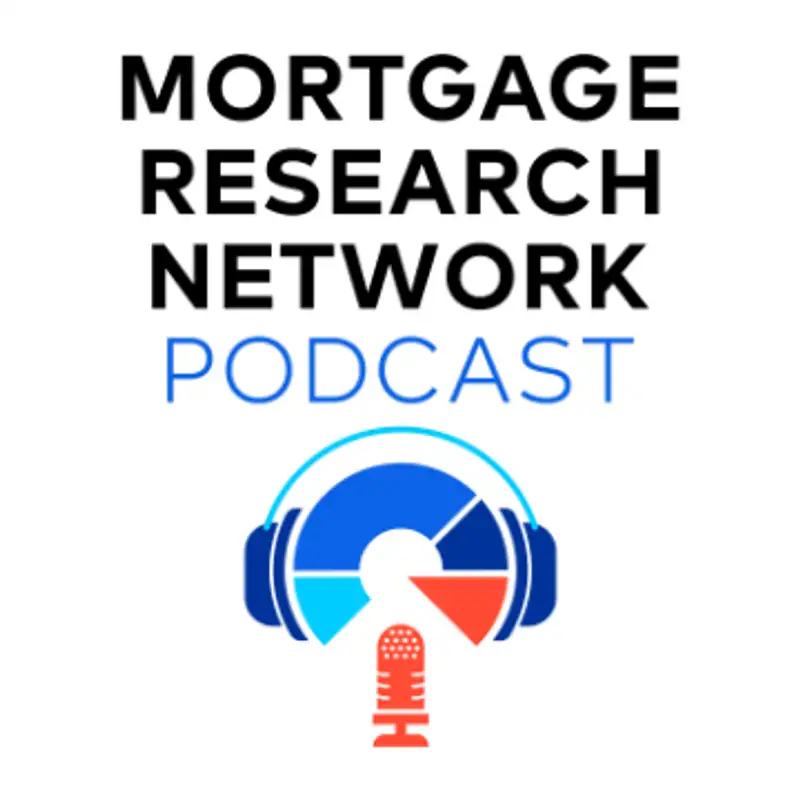The Other Mortgage Market: 3 Million Buyers Outside the System
Welcome to the Mortgage Research Network Podcast. Just a note that this podcast audio is AI-generated but based on content that was produced by people. And your hosts, Tim and Craig, are real. Without further ado, let's get into today's topic.
I'm your host, Tim Lucas, editor of MortgageResearch.com and a former mortgage professional, and with me is Craig Berry, a mortgage originator with 25 years experience. Craig, did you know that over 3 million Americans are buying homes through unregulated, potentially predatory financing deals because they can't get traditional mortgages.
That's a staggering number. What exactly are we talking about here. like, what kinds of alternative financing?
Well, we're looking at everything from lease-purchase agreements to land contracts and seller-financed mortgages. And here's what's really interesting. it's not evenly distributed across the country. In rural areas, nearly 10% of home buyers are using these alternative methods, compared to just 6% in urban areas.
What's driving that rural-urban divide?
First off, rural homes tend to be more affordable, which actually creates this bizarre problem. banks often won't even bother with mortgages under $150,000 because they say it's not worth their time. The processing costs are the same whether it's a million-dollar loan or a $50,000 one.
So what you're telling me is that banks are essentially saying "sorry, you aren't borrowing enough and since we work on commission, we can't help you"? That's pretty messed up.
And it gets even more complicated with manufactured homes. 75% of them are classified as personal property, like a car, rather than real estate. That classification alone can lock people out of traditional mortgages.
Right, because home lenders aren't going to loan on something that's legally a vehicle, right?
Yep. To get a traditional mortgage on a manufactured home, you need to own the land it sits on, meet certain technical standards, and have it designated as real estate. The wild thing is, changing this designation isn't even that difficult - most people just don't know it's an option.
So there's potentially a solution right there that people just don't know about. What about other types of housing?
Let's talk about condos and duplexes. About 23% of buyers in these properties end up using alternative financing, compared to just 3% for single-family homes. Banks don't want to deal with evaluating homeowners' associations and their financial stability.
That's an enormous difference. What kinds of risks are people taking on with these alternative arrangements?
Many people end up trapped in these complex contracts with predatory terms, higher costs, and basically no consumer protections. Some never actually end up owning their homes, even after years of payments. And because these arrangements are largely unregulated, there's very little oversight.
You know what this reminds me of? The way payday loans target people who can't access traditional banking services. It's like creating a separate, more expensive system for people who are already struggling.
That's such a good comparison. And just like with payday loans, these alternative financing arrangements often come with hidden costs. You might think you're getting a deal because the monthly payment is lower, but you could be giving up things like building equity, legal protections, and the ability to refinance.
So what solutions are experts suggesting?
The Pew Research Center has some specific recommendations. They're calling for federal policymakers to focus on expanding access to traditional mortgages in these underserved markets. The technical barriers aren't actually that high. If we can process million-dollar mortgages efficiently, we could definitely develop systems for smaller loans.
That makes it sound like this is more about political will than actual technical limitations.
Exactly right. And you know what's particularly frustrating? This affects communities that often don't have a strong voice in policy discussions. Rural areas, lower-income families, manufactured home buyers. these aren't typically the groups that have powerful lobbies advocating for them in Washington.
Looking ahead, what do you think needs to happen first to start addressing this issue?
Based on the research, we need two immediate changes: creating incentives for traditional lenders to serve these markets, and establishing basic consumer protections for alternative financing arrangements. Because right now, millions of Americans are operating without a safety net in one of the biggest financial decisions of their lives.
That really puts the whole situation in perspective - we're talking about people's homes, their financial futures, and their families' stability.
Yeah, and until we see meaningful change, the American dream of homeownership will continue to come with some pretty dangerous fine print for millions of families.
That's about all the time we have for this topic, but we go into even more detail on the site. To learn more, type alternative financing into the search bar at Mortgage research.com. We'll see you next time on the Mortgage Research Network Podcast.
